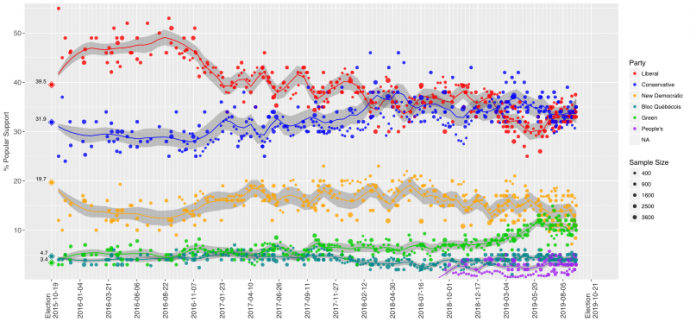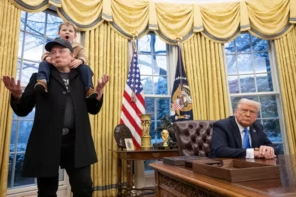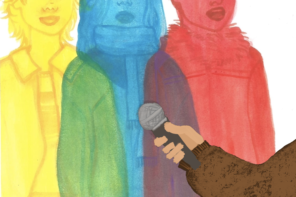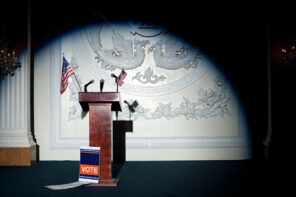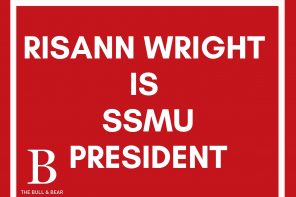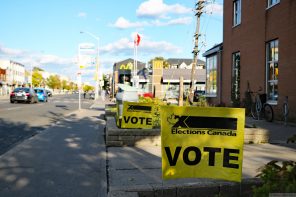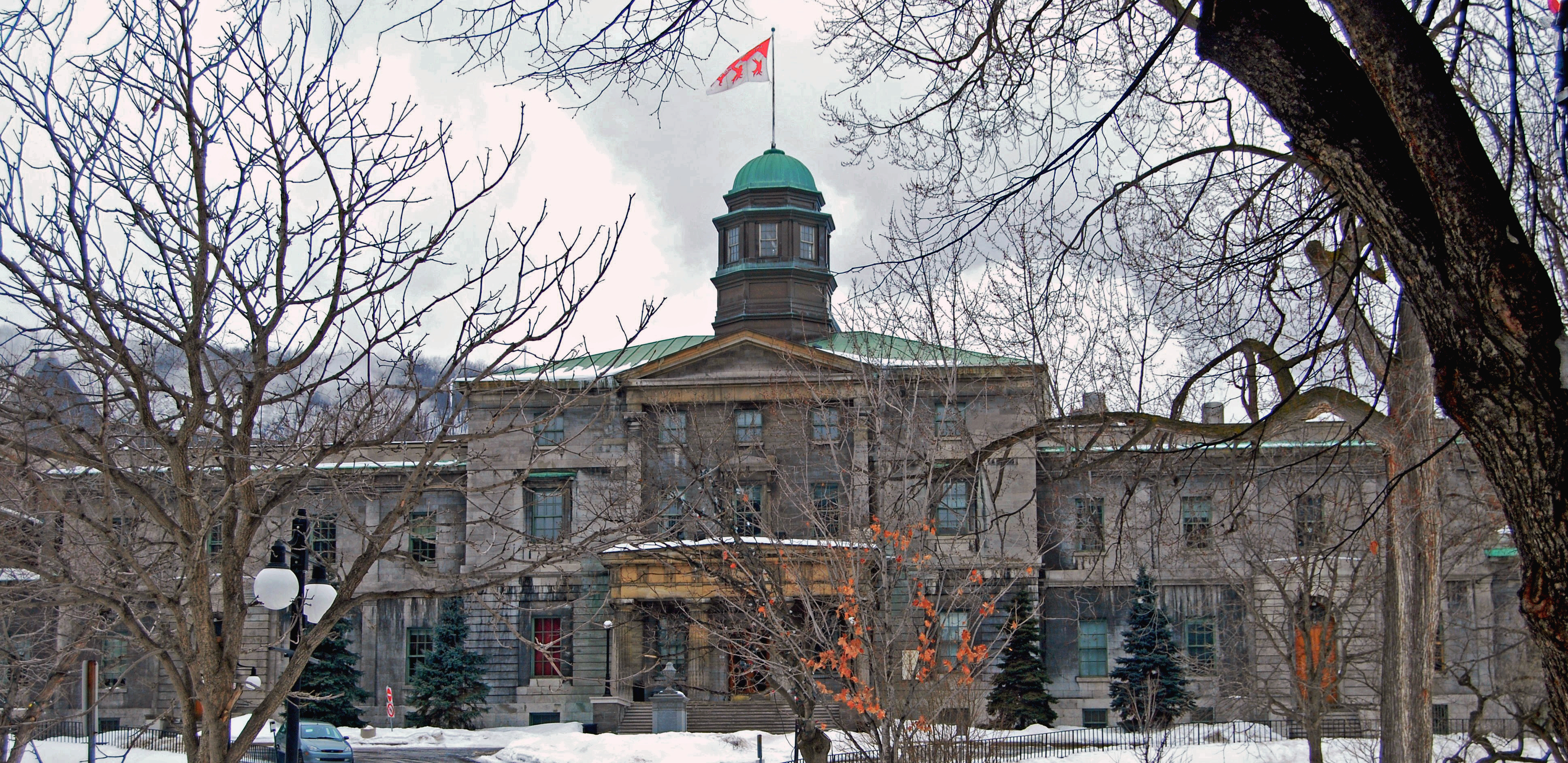In the lead-up to the 2019 federal election, on October 17, the Max Bell School of Public Policy hosted a panel of political scientists to examine Canadian foreign policy and signs of interference in the upcoming election. The panel was comprised of Rohinton Medhora, President of the Centre for International Governance Innovation, Professor Marie-Joëlle Zahar, Director of the Research Network on Peace Operations, Taylor Owen, Associate Professor at McGill, and Kaleigh Rogers, Senior Reporter at CBC, and was moderated by Jennifer Welsh, the Canada 150 Research Chair in Global Governance and Security.
Canadian Foreign Policy
Zahar noted that “true to form” foreign policy has been absent from the debate, as the Conservatives simultaneously stake out a claim to being a staunch ally of the U.S. while shying away from other international commitments. Zahar argued that Andrew Scheer’s indifference in participating in UN Peacekeeping and Sustainability Development Goals, while proposing to slash foreign aid by 25%, demonstrates this. Meanwhile, Liberals intend to increase defense spending with hopes of meeting the 2% NATO-recommended military budget, and advocate for meeting the OECD-recommended 0.7% of GNI spending. Additionally, Zahar considers the NDP as claiming a position of international “moral leadership,” advocating for nuclear disarmament as tensions between India and Pakistan and an uncertain situation in Syria pose a risk of “devolv[ing] into nuclear warfare.”
Medhora noted that Canada’s federal climate change policy contributes to global public good, noting that this international norm-setting is more important than its domestic environmental effects.
Zahar commented that it is necessary to examine what it means “abstractly” if Canada moves towards a Conservative direction, pursuing closer relations with the US. She commented that Canada has chosen to react to global events more often than pursuing or “articulating a [global] vision of itself.”
We are increasingly being forced to decide between dealing with countries on the basis of values or interests.
Zahar noted that “we are increasingly being forced to decide between dealing with countries on the basis of values or interests,” noting that Canada has attempted to integrate China into financial institutions but has criticized the country politically. She cautioned that a current ally may end up being a future enemy, citing contentious negotiations with the U.S. over NAFTA.
Election Interference
Owen emphasized Canada’s leadership in the recently created G7 global taskforce to monitor elections as a signal that the country is committed to protecting electoral democracy abroad. He also emphasized his work with the Digital Democracy Project, which revealed a lack of large-scale foreign interference detected in the Canadian 2019 election.
The study revealed that Canadians have overwhelmingly high trust in the media and an absence of populist sentiment, in comparison with other countries. He expressed that Parliament has made it more difficult for foreign actors to engage in egregious election interference, through means such as banning the purchase of Facebook dark ads.
However, Owen hypothesized that methods of foreign interference may be evolving into forums where researchers cannot easily identify false information, such as WhatsApp groups and online comment sections. Owen acknowledged that the election’s formal discourse was unusually shallow, a reflection that politicians and the media were largely interacting superficially online, leading him to call it the “first social media election.”
Kaleigh Rogers described her role in CBC’s disinformation unit as determining whether disinformation campaigns were run by disguised foreign agents. While many expected “bombastic” Russian interference in the election, her work revealed that discrete forms of domestic interference featured more prominently in disinformation campaigns.
Rogers cautioned that smaller forms of domestic interference can slowly polarize and erode the public’s trust in the media and democratic institutions, emphasizing the importance of real life political conversations with those consuming disinformation online. Owen was, however, skeptical of promoting individual agency regarding the prevention of disinformation. He emphasized the importance of digital literacy pertaining to the spread of disinformation.
Canadian Democracy
Marie-Joëlle Zahar argued that other modes of engagement, such as town halls, are necessary to “capture the nuances” of true democracy. She lamented that the style of the leaders’ debates often prevent people from asking candidates in-depth questions. When asked what has stopped Canadian democracy from backsliding, Zahar cited Canada’s role in international norm-setting, discouraging domestic actors from acting unilaterally.
Owen warned that both main technological infrastructures being deployed in the world, from the U.S. and China, have an embedded utility for autocratic and liberal regimes alike. He argued that American technology can aid in the manipulation of content, exploit political divisions, and undermine truth. Meanwhile, Chinese technology such as surveillance and mass data collection can be used as tools for social control, even in nominally liberal societies. He argued that a main challenge for the future is properly regulating this technology, given its utility for many governments. Echoing this sentiment, Medhora called for a “Bretton Woods of the 21st Century” to address media disinformation.
Through content dissemination or targeted advertising, divisions can be exploited, the reliability of information can be undermined
“I’m not sure we’re doing a very good job of [ensuring] that our technological infrastructure is as democratic as possible,” Owen explained, closing the discussion. “Through content dissemination or targeted advertising, divisions can be exploited, the reliability of information can be undermined… a key illiberal tactic of regimes.”

